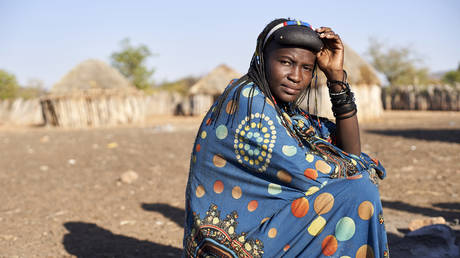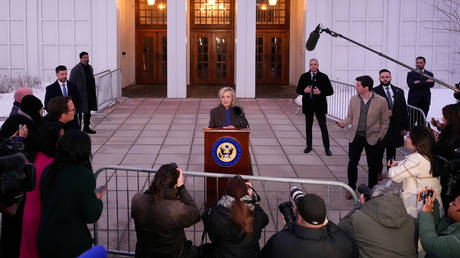
On FGM Awareness Day, women say it’s a long road to end the centuries-long practice
February 6 is proclaimed by the World Health Organization as International Day of Zero Tolerance for Female Genital Mutilation (FGM). It is a practice mostly performed on young girls, no older than 15 years old. It has no medical reasons. Generally, it is based on a belief that cutting would ensure marital fidelity – and also would make the girl keep her virginity until she gets married. It means that in certain communities only a girl who was cut will be able to find a husband.
FGM can be performed in different ways – from pricking, incising, scraping or cauterizing the genital area to total removal of the clitoral glans and the labia minora and majora. Apart from pain and excessive bleeding, such wounds may cause fever and infections. Sometimes it leads to death.
Girls may get life-long complications, both physical and mental. Urinary, menstrual, and sexual problems, increased risks while giving birth, for both mother and child – the list is very long. Adding to the damage, the psychological trauma is not going anywhere.
Female Genital Mutilation is recognized a human rights violation by the UN. According to its data, the practice goes on in 30 countries across the western, eastern, and north-eastern regions of Africa, and some countries in the Middle East and Asia. More than 200 million girls and women have been subjected to FGM there, with more than three million estimated to be at risk annually. We are talking only about the official data here. Nobody knows the real data.
Social norms too strong
Anti-FGM activist Fatou Mandiang Diatta had undergone the procedure in her native Senegal when she was very young. All she recalls is pain. Diatta says that in her neighborhood, two babies passed away after FGM, but it was a taboo to talk about this, so everyone kept silent.
Why do people still carry on with the tradition? Diatta told RT that in some areas, women who didn’t undergo it are just outcast. “If you cannot belong to your community, you live like an animal in your own village,” she explains. “If you are not cut, you cannot find a husband, you cannot cook for people, you cannot give a hand to people.
It’s a religious issue for the place where I come from,” Diatta says. “If you are not cut, you are not considered to be a mature woman.”
London-based sociologist and writer Hilary Burrage spent years researching the phenomenon of FGM. She told RT that significant economic pressure should also be taken into account: “When the community is embedded into the process, a lot of people would be out of pocket if it stops.”
‘Rest of us don’t know how it feels like’
While working on her books, Burrage spoke to many women who had undergone FGM. “For some people – they just say ‘well, it happened,’ for other people, it damages them for their whole life, because they are thinking ‘Why did they do that to me?’” she recalls.
The psychology of the problem is quite complicated, Burrage explains. “It has parallels with PTSD. People who have been hurt cling together, because they – correctly – think that the rest of us don’t know what it feels like,” she says. “Which is true, because we try to describe it, but we don’t know whether we are right.”
She says that the most regrettable side of the practice is that the girls are not given a choice. “The very sad part of it is that it’s done when children are too little to have a view about the matter. When you are little, you don’t have a choice as an adult.”
In the UK, FGM is illegal. In 2019, a woman from Uganda became the first to be jailed for having subjected her three-year-old daughter to FGM. According to the activists’ data, around 137,000 women living in the country have undergone the procedure, while some 60,000 girls under 15 are at risk.
Global concern
“FGM is therefore of global concern,” the UN website states. In Russia, it happens as well, but there are no statistics to know how often. The media has been reporting testimonies from Dagestan and Ingushetia. In the latter one, at the end of January, the first FGM-related criminal case in Russia ended up in a fine for a doctor who performed the procedure on a nine-year-old girl. However, the convicted woman was cleared of the punishment because the statute of limitations had expired. As the girl’s relative told RT Russian, the mother didn’t know about the procedure, as it was secretly done by the girl’s father and his new wife. According to her words, after the girl received a wound on the genitalia, she suffered from fever, bleeding, and shock. A medical examination concluded that the injury was a result of a ‘ritual circumcision’. The doctor was accused of causing ‘minor damage’ to the girl’s health.
In 2016, there was an initiative in the Russian parliament to introduce criminal punishment for FGM. The project is yet to turn into a law. A massive social discussion on the matter was triggered by a report composed by Stichting Justice Initiative (SJI), a human right organization recognized as a ‘foreign agent’ by the Russian authorities. The report was dedicated to FGM in Dagestan, and the debate around it was heated even more by the reports about the reaction of one of the Islamic leaders of the North Caucasus. Several media outlets insisted that he had voiced his approval of the practice. However, the cleric clarified that his words had been taken out of context by the journalists and said that the procedure is not ordered by the religion.
Laws not enough
Having a law against FGM, unfortunately, doesn’t mean that the procedure automatically stops. “There are a lot of countries that have legislation regarding FGM, but women are hiding themselves and cutting their girls,” Fatou Mandiang Diatta says. “And it becomes worse, because in case of health complications, they can’t bring a girl to a hospital.”
In her native Senegal, and in Germany, where Diatta lives now, FGM is banned. However, according to the UN data, one in four women aged 15-49 have undergone FGM in Senegal. While in Germany, as of 2020, authorities reported about 68,000 people affected by FGM – an increase by 44% since 2017. The rise in numbers was attributed to greater immigration.
“The problem is that the African communities are not open enough,” Diatta explains. “A mother can tell a girl ‘This is a part of our tradition, we should not talk about it.’ The communities are really very closed. People think ‘We will create a new lobby and make a new law, and it all will stop.’ But sometimes these communities don’t even speak German, they don’t watch the TV, they don’t read newspapers, so how can they know that it is forbidden?”
Sociologist Hilary Burrage also thinks that it’s not enough just to make FGM illegal. “There are always politicians who would say ‘I’m going to do it.’ But they always stop when things become difficult,” she says. “I know some good politicians who want things to stop. I know some lawyers who are really committed, I know teachers and social workers, and medics, but they all are cautious, because it’s difficult.”
Training the young
Diatta says that education is the most important tool. “We do a lot of training in Senegal, we train the women, we train the religious communities, we train children at schools. We give them an opportunity to make their own activities,” she tells RT. Diatta says that the work is bringing some results, as in big cities people change their perception of the tradition. However, in small villages the practice is still going on.
In Germany, Diatta is involved in ‘behavior change activities’: “We train professionals who work with immigrants, we also make a lot of events with the communities. There’s really an emergency to find a way to eradicate it [FGM], because kids who are born here in Germany, sometimes are already cut, in Africa or somewhere abroad.”
Dr. Carolyne Njue, from School of Public Health, University of Technology Sydney, worked for the Population Council, an international organization to end FGM. She says that sometimes the girls from immigrant families go back to their countries of origin and get cut, because in their mindset they have an idea that FGM is a “passage” to adulthood, that it would be a way to be desired by men. So that’s why men also play a big role in stopping FGM – by saying “We don’t want this,” Dr. Njue points out.
In Australia, FGM is officially banned. The first criminal prosecution on the matter in the country was carried out in 2016, and ended up with prison sentences for a retired nurse, a mother of two girls, and a religious leader. According to the Australian government estimations, by 2019 there were 53,000 girls and women born elsewhere but now living in the country, who have undergone FGM.
Pressure from older generations is a huge problem within the communities, Dr. Njue told RT. “People do it because of their parents, or to please their grandparents, who say ‘This is my last request before I die, go and get cut.’ So you want to give them that last respect,” she explains. “The same for young men. When they want to marry a girl, parents ask ‘Has she been cut?’ And if you say ‘No,’ parents reply ‘So we don’t want her.’”
However, Dr. Njue insists that only young women and men may stop the archaic tradition from spreading by deciding which part of their culture they want to keep, and which part to leave behind. “We need to work with girls at schools, have educational programs with the communities, we need to talk about the issues like ‘What does it mean to be a woman?’ ‘What does it mean to be married?’ Dr. Njue says.
The UN aims to stop FGM by 2030. However, while the target is an ambitious one, the experts RT spoke to think it can’t be achieved so fast.
“We can say ‘By 2030, we are going to eradicate FGM’, but the communities have to get involved,” Diatta insists. “Because if they are not involved, nothing will happen.”




